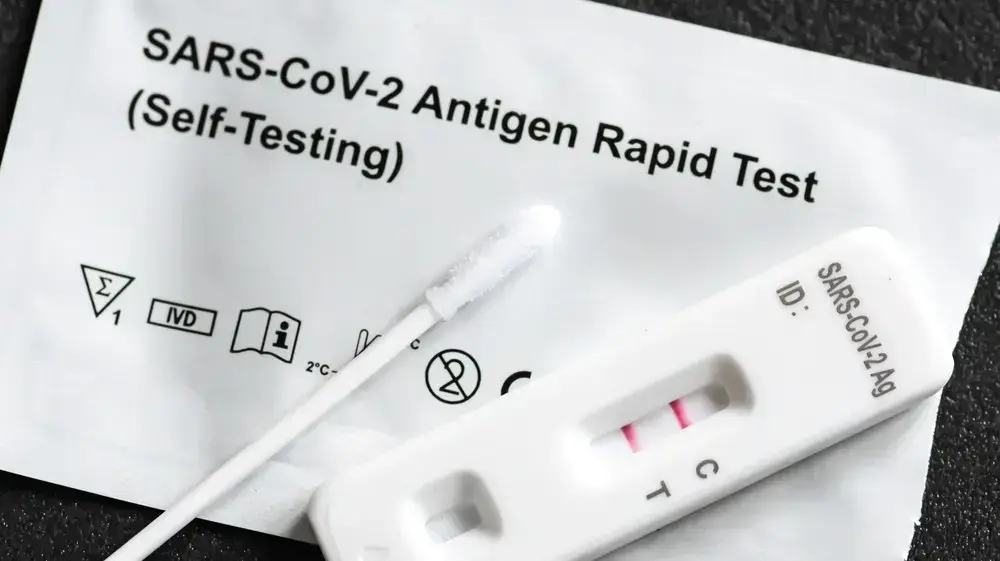Enlarge image
After the first easing of the corona protective measures last March: people in a pedestrian zone in Cologne
Photo: Oliver Berg / dpa
A new government always comes with the promise to do everything better than the old one.
It becomes difficult when the old government only administrates the country provisionally and the new one has not yet been formed, but at the same time a problem is pending whose solution cannot be postponed: How do we finally get Corona under control?
The number of infections is skyrocketing, the burden on hospitals is increasing, but the vaccination rate is hardly any longer.
And in a few weeks the so-called epidemic situation of national scope, the determination of which by the Bundestag has made many drastic measures in the fight against the virus possible in the first place.
CDU Health Minister Jens Spahn, only managing director in office, has campaigned not to prolong the emergency again, as if he wanted to announce the good news to the population on his departure: The worst is over.
He has thereby pushed a nasty stumbling block for the future government.
In the future, Spahn will no longer be responsible for corona policy, but in all likelihood according to the SPD, Greens and FDP, who are negotiating a traffic light coalition these days.
Transition period until March
"The virus does not wait for the next two months until the traffic light comes on," said Greens federal manager Michael Kellner of the "world".
And so the three desired partners have already agreed on the course for the coming months and thus presented the first joint agreement.
The SPD, the Greens and the FDP want the "epidemic situation of national scope" to expire on November 25th as planned.
For a transitional period, initially until March 20, 2022, the Bundestag is to adopt a stripped-down legal framework with which the states can still maintain individual measures.
The consultations on this should take place in mid-November.
November 25th will not be "Freedom Day" as celebrated by the British, said SPD parliamentary deputy Dirk Wiese on Wednesday in the Berlin federal press conference.
However, he emphasized: "School closings, lockdowns and curfews will in any case no longer exist with us." The new traffic light coalition apparently does not want to scare off the corona-weary citizens right at the beginning of their reign.
The core of the agreement between the future coalition partners is the closure of Paragraph 28a, Paragraph one of the Infection Protection Act.
Possibilities of a general restriction of travel, cultural events or restaurant visits, among other things, were recorded there.
The parliamentary manager of the FDP parliamentary group Marco Buschmann emphasized that this paragraph was "legal history".
"Unconstitutional curfews," he said, were no longer possible from now on.
The federal states cannot decide otherwise on these and other particularly drastic measures on their own through their state parliaments.
Buschmann insisted that the FDP was the first parliamentary group to want to end this exceptional situation.
Dealing with the epidemic situation had been one of the most controversial topics in recent years.
It is a good sign that they have reached such a constructive understanding.
In fact, the FDP in particular is likely to have prevailed at this point.
It is true that the Greens did not approve the extension of the epidemic situation in the Bundestag last August, but because they wanted the measures to be different, not their blanket end.
According to the will of the traffic light coalition, the paragraph in question of the Infection Protection Act is now to be replaced by a "manageable catalog of low-threshold measures" that the federal states can use in the fight against the virus.
This includes, for example, the mask requirement, distance rules or proof of vaccination, recovery or test evidence when attending cultural, sports and leisure events.
The home office obligation is to be ended.
Social aspects of the law should be retained, emphasized Greens parliamentary group leader Katrin Göring-Eckardt, such as the simplified access to basic security.
A group of experts is to advise on ways to accelerate vaccination progress.
The advance of the traffic light-wish coalition comes a day after the World Health Organization (WHO) has extended the health "emergency of international scope".
The WHO appealed to the countries that the pandemic is far from over and that they should keep their protective measures.
According to the definition of the Infection Protection Act, this is actually a reason for assessing the national situation in a similar way.
Intensive care physicians have also been warning against ending the exceptional situation for weeks. This step sends the wrong sign of relaxation, while incidences and hospitalization numbers are rising again across Germany, but the vaccination rate is hardly any. SPD health expert Karl Lauterbach had also spoken out against an end to the emergency. Measures such as the 2G rule, although not officially named as such, had put some pressure on unvaccinated people to be immunized. This pressure will cease at the end of November.
The Robert Koch Institute (RKI) rates the risk of infection as moderate for vaccinated people.
That is why Andreas Gassen, head of the German Medical Association, and the chief executive of the German Hospital Association, Gerald Gaß, consider the planned step from red-green-yellow to be unproblematic.
"The pandemic remains unpredictable."
Bavaria's Minister of Health Klaus Holetschek
In the countries, however, people are alarmed.
Last week, the prime ministers took a clear position: They called for a uniform legal framework.
In some state parliaments, it is already becoming apparent, it could otherwise be difficult to take decisions on further protective measures.
In Bavaria, for example, the CSU is likely to be concerned about its coalition partner, the Free Voters.
Bavaria's Minister of Health, Klaus Holetschek, welcomes the fact that the SPD, Greens and FDP
wanting to create a uniform legal basis, but at the same time calls for more flexibility for the federal states and for adjustments to be made in the case of concrete measures.
Holetschek, who is also chairman of the conference of health ministers, stated: »The pandemic remains unpredictable.
Nobody knows today whether it will be over on March 20, 2022. "It therefore makes no sense" that the state parliaments should in future be curtailed in their right to decide on an epidemic situation in their country themselves. " the future coalitionists want to explicitly exclude it from the transitional regulation.
"If you want to enforce normality, you may prevent it."
Saxony's Prime Minister Michael Kretschmer
Saxony's Prime Minister Michael Kretschmer (CDU) warned: »A big mistake happened in the spring.
Politicians had decided against the advice of science to lift protective measures in the event of increasing infections.
The result was the federal emergency brake and lockdown in spring.
If you want to enforce normality, you may prevent it. "
In these days, so Kretschmer, a decision can still be made whether restrictions could be concentrated on the risk group of the unvaccinated.
In a few weeks, this option will no longer be available either.
»2G is now an absolute must.
The infections in the unvaccinated people determine this fourth wave, ”said Kretschmer.
In the CDU-led Saarland, on the other hand, full football stadiums without corona controls will soon be allowed.
And so it announces once again what has also been true for the past two years of the pandemic: a patchwork of regulations.
The future traffic light partners can only hope that the situation in the intensive care units does not worsen dramatically in winter or that a new virus mutant throws its course overboard.
The last Minister of Health knows how unpopular you make yourself with it.















